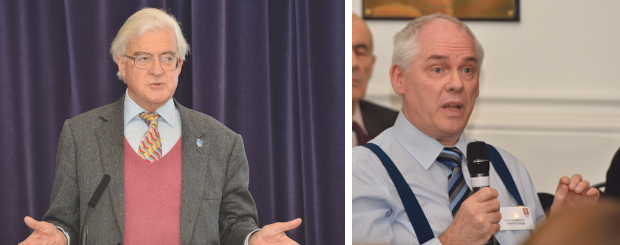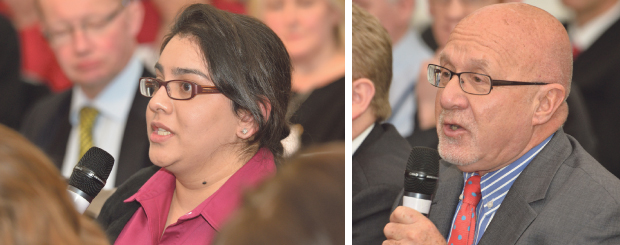England could have more than 100 University Technical Colleges (UTC) up and running by the next general election, according to Lord Baker of Dorking.
“We’re going to have a considerable number of UTCs over the course of the next few years,” Lord Baker said.
“Possibly, by the next election, more than 100 will be approved…and most of them will be open by then.”
Lord Baker, co-founder of the Baker Dearing Educational Trust, used the conference to propose a new educational system consisting of four college types, available to all students from the age of 14.
The proposed model included liberal arts colleges, focused on traditional academic subjects “rather similar to the grammar school curriculum”, as well as the emerging UTC model.
“You would then have sports, performing arts and creative arts colleges,” Lord Baker said.
“The fourth, I think, should be a career college.”
Lord Baker said the UTC model was a rare chance for businesses and employers to try and influence the curriculum.
“Industry has never had that chance before,” he said.
“I’m fed up with industrialists always complaining how awful the English educational system is – well now they have a chance to actually shape it in a way which they want it to be shaped.”
He added: “That is revolutionary.”
The UTC concept challenges the age at which students leave school and the point at which they begin to receive vocational training.
Ian Pryce, principal and chief executive of Bedford College, said: “Most schools have shown themselves to be useless, and I mean that, useless, at vocational education.
“They damage the brand.”
Mr Pryce added: “It may even be a word that’s tarnished as a result of that.”
Delegates were given an insight into the operation and learner outcomes of the UTC model by Jim Wade, principal of The JCB Academy in Staffordshire.
Mr Wade said many students think of the UTC as a fresh start, having previously been “discontented” with their experience in education.
“Quite a high percentage of our youngsters have dyslexia as a specialist educational need, and are of average ability,” Mr Wade said.
“A key factor about them though, is that they tend to be slightly discontented with their previous school experience.”
He added: “They see the academy as a second chance to make their education a success.”
I’m fed up with industrialists always complaining how awful the English educational system is”
Nineteen UTCs have been approved so far, although a further 27 were submitted for the second round of applications last week.
“They are of a very high standard indeed, right across the country,” Lord Baker said.
“There will certainly now be more than 24.”
UTCs cater for students between the age of 14 and 19, relying on relationships between both universities and employers to support the curriculum.
Each UTC specialises in one or two technical fields, but also caters for a broad range of general subjects including English, mathematics, science, a modern language, humanities and sport.
“There should be a rounded education,” Lord Baker said.
“Not just a specialist education, a much more rounded one for the student than they would get taking a course at an FE college.”
Dr Susanne Wiborg, head of lifelong learning and comparative education at the institute of education, said UTCs were a chance for the government to try and fix some of the problems associated with vocational training.
“The coalition is trying to shake up the education landscape in England through the academy and free school programme, and now also the UTCs,” Dr Wiborg said.
“The history of vocational and education training in England is long and troubled.”
She added: “It is clear for the government that many aspects of it still need fixing.”



Your thoughts